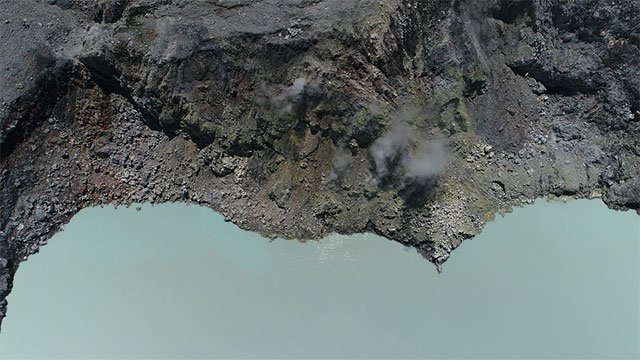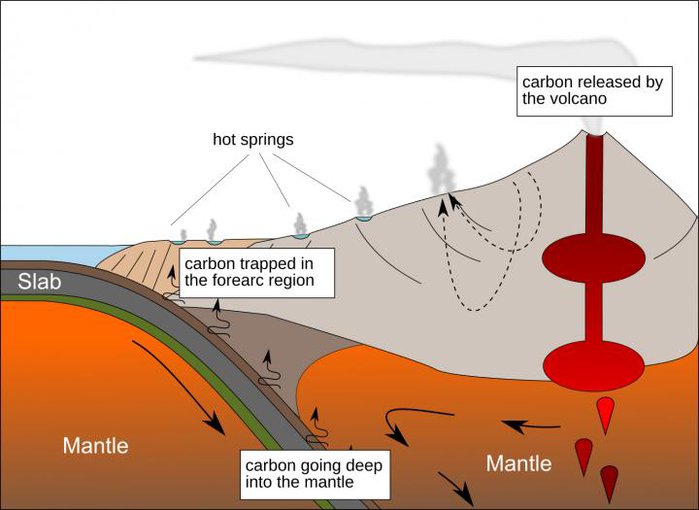
July 15, 2019
Research Highlight
Discovery of Microbial Activity in Carbon Sinking as a Gatekeeper of Earth's Deep Carbon

Drone view above Poás volcano.Image credit: Peter Barry.
From Tokyo Institute of Technology
An international and interdisciplinary team with members from Costa Rica, Iceland, Italy, Japan, the US, the UK, and Turkey, including several from the Earth-Life Science Institute (ELSI) at Tokyo Institute of Technology, and the ELSI Origins Network, have reported new estimates for the amount of carbon cycling on a global scale between Earth’s crust and mantle. The efficiency of this transfer has profound implications for Earth’s deep mantle and shallow crust, and the proportions of carbon being routed through this mechanism were previously poorly understood. The new finding lowers estimates for the efficiency of carbon subduction by 20% and has important implications for understanding Earth’s past and present climate.
Click here to read the full press release from the Tokyo Institute of Technology.

Simplified section of the subduction zone in Costa Rica.Image credit: Patricia Barcala Dominguez.
The study, “Forearc carbon sink reduces long-term volatile recycling into the mantle,” was published in the journal Nature. The work was supported in part by NASA Astrobiology through the Exobiology Program.